- Bend at your knees and hips, keeping your back straight.
- Lift with your legs, not your back.
- Keep the shovel close to your body as you lift.
- Don’t overload the shovel — take smaller scoops.
Thursday, January 15, 2026
3 MORE Tips for Safe Snow Shoveling
Thursday, January 1, 2026
3 Tips for Safe Snow Shoveling
Visit Your Local Ann Arbor Chiropractor; No Pressure, No Commitment
Monday, December 15, 2025
How Shockwave Therapy Helps Elbow Tendon Pain
Did you know that Extracorporeal Shockwave Therapy (ESWT) is a non-invasive treatment option?
ESWT works by delivering targeted acoustic waves to the injured tendon. These controlled pulses stimulate your body’s natural healing processes, helping break the cycle of chronic inflammation.
Benefits of ESWT for Tennis Elbow & Golfer’s Elbow:
- Stimulates collagen production needed for tendon repair
- Increases blood flow to the damaged tissue
- Breaks up calcifications or scar tissue
- Reduces pain by desensitizing nerve endings
- Improves mobility and function
- Accelerates long-term healing of chronic tendon injuries
Many patients notice improvement within a few treatments, with continued healing over several weeks.
Learn more in our latest article.
Start Healing Your Elbow Pain with ESWT
You don’t have to live with chronic elbow pain. If tennis elbow or golfer’s elbow is limiting your mobility or affecting your quality of life, shockwave therapy may be the solution you’ve been looking for.
Contact Dr. Gessert today to schedule an appointment and find out how Shockwave Therapy can help you get back to the activities you love—without pain.
Monday, December 1, 2025
What is Tennis Elbow and Golfer's Elbow?
- Elbow pain and tenderness
- Weak grip strength
- Stiffness or achiness
- Pain that radiates into the forearm or wrist
- Difficulty lifting or gripping objects
Start Healing Your Elbow Pain with ESWT
Saturday, November 15, 2025
Symptoms of Torticollis
While experiences vary, common symptoms include:
- Head tilted to one side
- Limited range of motion in the neck
- Muscle spasms and stiffness
- Headaches linked to neck tension
- Uneven shoulders or posture issues
- If left untreated, torticollis may become chronic or interfere with daily life.
Learn more in our latest article.
How Your Local Ann Arbor Chiropractor Can Help with Torticollis
Specific structural chiropractic care is different from general chiropractic adjustments. Rather than focusing only on short-term pain relief, it targets spinal misalignments that may contribute to torticollis.
If you or your child struggles with torticollis, a consultation with your Ann Arbor chiropractor can be the first step toward relief and prevention of future episodes.
Contact Dr. Gessert’s office at (734) 221-0362 or by submitting a contact form.
Saturday, November 1, 2025
What Causes Torticollis?
- Muscle strain from sleep or sudden movement
- Spinal misalignments in the upper cervical spine
- Congenital muscle tightness in infants
- Degenerative changes like arthritis
How Your Local Ann Arbor Chiropractor Can Help with Torticollis
Wednesday, October 15, 2025
Who Can Benefit from ESWT?
- Plantar fasciitis (heel pain)
- Tendon injuries like rotator cuff issues or Achilles tendinitis
- Overuse injuries such as tennis or golfer’s elbow
- Chronic pain that hasn’t responded to rest, stretching, or medication












